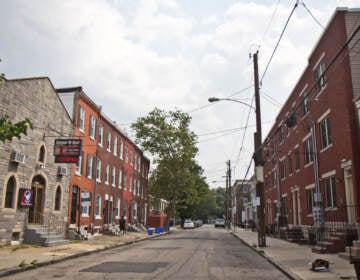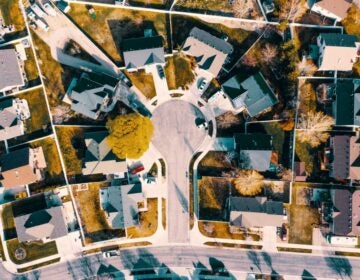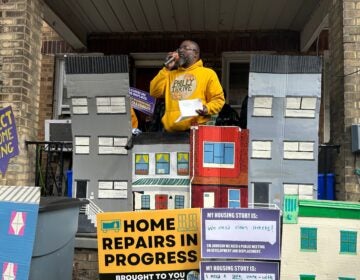Homes in Black neighborhoods in Philly are often undervalued by appraisers. Could a new virtual reality program help?
Advocates say home appraisal bias can be traced to the industry’s lack of diversity. They say having an alternative to apprenticeship hours could help.
Listen 5:40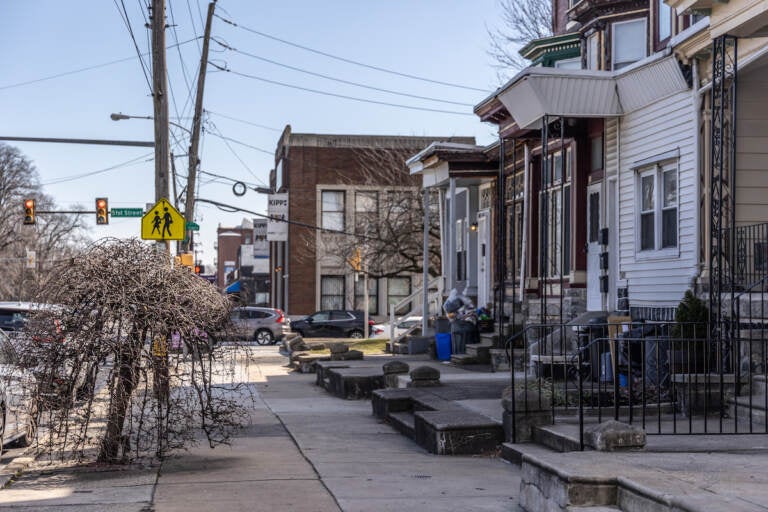
Homes in Philadelphia’s Parkside neighborhood. (Kimberly Paynter/WHYY)
Salima Cunningham was annoyed, but not totally surprised, when she got the first appraisal for the triplex she owns in West Philadelphia.
“I didn’t think it was going to be as bad as it was, but I knew it wasn’t going to be what I knew it should be,” Cunningham said.
In 2021, an appraiser from outside the city valued the three-story rowhouse at roughly $300,000, an amount Cunningham thought was far too low for Parkside, a historically Black neighborhood that’s starting to gentrify.
She had pegged the value at closer to $450,000 based on the work she put into the property and the rental income it generated. Not to mention its location near a large park and proximity to the Mann Center, a popular outdoor music venue.
Cunningham needed the higher value reflected in the appraisal so she could borrow enough to recoup the cost of renovating the investment property. She said the figure she got was low because the appraiser was biased, even if he didn’t intend to be.
“People outside of the city have no idea about the city. I know they think they do because maybe they come here to do their shopping or go to dinner. But it’s a totally different wheelhouse as far as valuation,” said Cunningham.
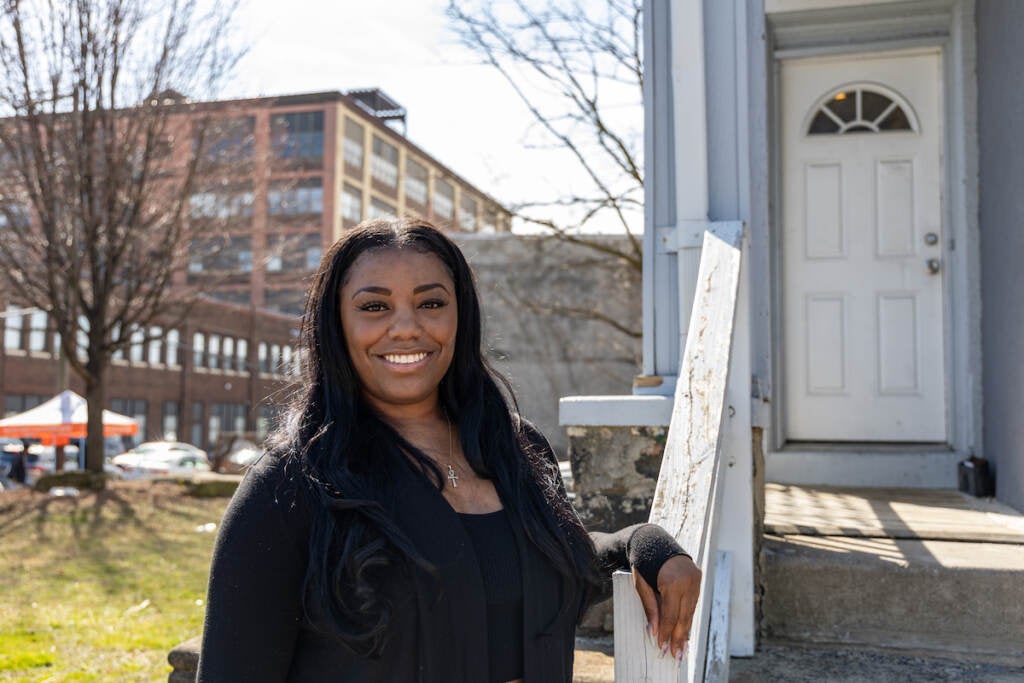
She later paid to appeal the appraisal and got a new value from a second appraiser: $500,000.
Home appraisal bias is a longstanding practice rooted in racial discrimination, and occurs when homes in primarily Black neighborhoods are valued less than similar homes in primarily white neighborhoods. This potentially cheats families out of generational wealth, while making it harder for homeowners to refinance or secure a mortgage for a more expensive house.
Anecdotally, home appraisal bias has led Black homeowners to “whitewash” their homes — remove family photos and other identifying objects — in advance of an appraisal in an effort not to lose out. In Philadelphia, homes in primarily Black neighborhoods are undervalued by an average of nearly $26,000, according to Redfin.
The city now has a task force dedicated to the issue. And Pennsylvania is working to expand the industry and make it more diverse.
The overwhelming majority of appraisers are white men, a problem advocates blame on a longstanding requirement for aspiring appraisers: apprenticeship hours. People need at least 1,500 of them to become a certified real estate appraiser in the state. But it’s not easy to find a shop willing to provide the training, especially for people of color.
“People of color find it difficult to break into that because people tend to, for I think some problematic reasons, make that opportunity available only to people who look like them. And frankly, in this profession, oftentimes it’s relatives, the way it was described to us,” said Ira Goldstein, who chairs the Philadelphia Home Appraisal Bias Task Force.
Goldstein said, anecdotally, the apprenticeship model contributes to home appraisal bias.
“If you are being supervised by somebody who is not necessarily deeply steeped in fair housing law, they’re not steeped in understanding the uniqueness of certain real estate markets. Yes, then that supervisory trainee model replicates problems that have historic roots,” said Goldstein, who is also president of the policy solutions group at the Reinvestment Fund.
To deepen Pennsylvania’s pool of real estate appraisers, the state is in the process of adopting an alternative to the apprenticeship model called PAREA — Practical Applications of Real Estate Appraisal. It’s an online course that teaches and tests participants on different aspects of home appraisal.
The program, which is still being developed for a national rollout, is based on proficiency, instead of apprenticeship hours.
“It uses appraisal methodology, appraisal theory in realistic scenarios. It uses virtual reality. It can be computer-based learning and also have virtual assistants or virtual learning or gaming as well,” said Aida Dedajic, director of engagement at the Appraisal Foundation, the nation’s largest professional association of real estate appraisers.
At the end of each section, participants must show a mentor they’ve mastered the subject before they can move onto the next one. For example, they have to understand how to identify and use comparable properties — recently sold homes that are similar to the property being appraised.
They also have to know how to read a floor plan and account for home improvements, among other requirements.
“The great thing about PAREA is that they’re doing the work on their own. So they’re not relying on the supervisor, who may have in some cases really assisted somebody in completing their appraisal reports,” said Dedajic.
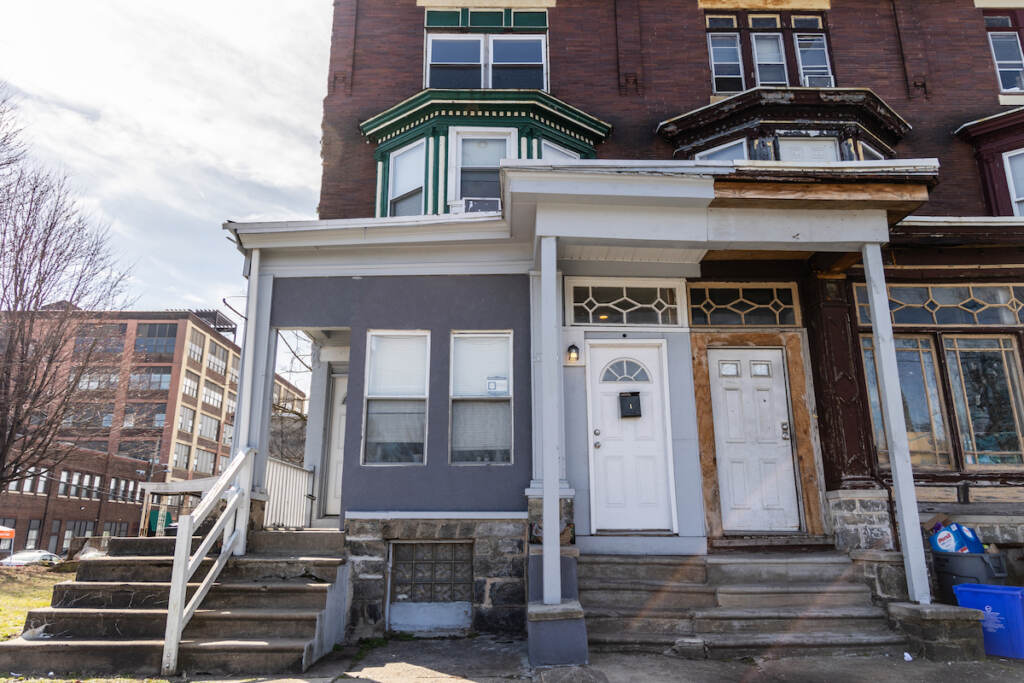
Under a rulemaking package being considered by Pennsylvania’s Board of Certified Real Estate Appraisers, PAREA could be used to replace 100% of the apprenticeship hours now required to become a certified residential real estate appraiser. The program could not be used in place of the apprenticeship hours currently required to appraise commercial real estate.
Veteran appraiser Carlo Batts is among the state’s only appraisers of color. He said he applied to four shops before landing an apprenticeship with a bank in Delaware.
It was a dream come true for Batts, who left a job with Virginia’s department of housing to pursue appraising.
“When I interviewed for the position, I remember going home and my girlfriend and I, you know, on our knees just like praying, like ‘I really want this opportunity,’” said Batts, now a principal at Rittenhouse Appraisals in Center City.
For Batts, PAREA is a promising way to expand and diversify the industry.
“Anything we can do at this point to increase the supply of appraisers in this state and across the country is definitely good. I think we’re at a crisis situation where there’s just not enough appraisers to serve the demand, especially for the residential housing market which has mushroomed astronomically,” he said.
Goldstein, with the Philadelphia task force, agrees with Batts: PAREA is a positive step. But he said it shouldn’t be seen as a panacea for home appraisal bias, particularly because it doesn’t specifically cover or directly reinforce federal fair housing regulations.
“There is a very specific discussion inside of the Fair Housing Act of what it means to make housing available and unavailable. And appraisals are a part of that. There’s also some very specific language about what is exempt from consideration and should not be considered a part of the appraisal,” said Goldstein.
That includes race, religion, sex, disability, and familial status. For example, if someone is pregnant or is in the process of securing legal custody of a person who is under 18.
Pennsylvania’s Board of Certified Real Estate Appraisers is still weighing whether it wants to adopt PAREA, the first step of a long process for making it part of the state’s regulations for becoming a certified appraiser.
It could be nearly a year before that happens.
 WHYY is one of over 20 news organizations producing Broke in Philly, a collaborative reporting project on solutions to poverty and the city’s push towards economic justice. Follow us at @BrokeInPhilly.
WHYY is one of over 20 news organizations producing Broke in Philly, a collaborative reporting project on solutions to poverty and the city’s push towards economic justice. Follow us at @BrokeInPhilly.

Subscribe to PlanPhilly
WHYY is your source for fact-based, in-depth journalism and information. As a nonprofit organization, we rely on financial support from readers like you. Please give today.





